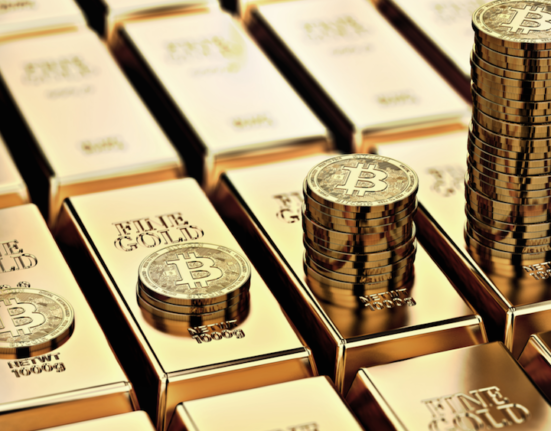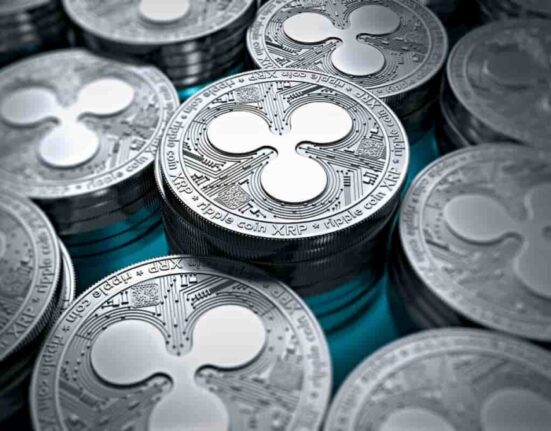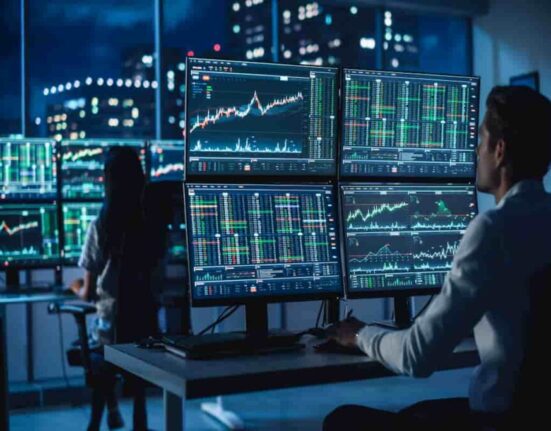The trading volume for the XRP/KRW pair on South Korea’s Upbit exchange surpassed $7 billion earlier today, according to data provided by CoinMarketCap.
In fact, the trading pair accounted for nearly a third of the exchange’s trading volume. HBAR/KRW and BTC/KRW come in second and third places with 5.92% and 5.70%, respectively.
According to analytics firm Lookonchain, the South Korean cryptocurrency market has experienced significant turmoil.
Some South Korean won trading pairs started plummeting on Upbit, with XRP falling to $1.89 and Bitcoin slipping below the $80,000 level despite trading above $95,000 on major exchanges. Many whales transferred large amounts of USDT tokens to the leading trading platform, anticipating “bottom-fishing” opportunities.
More than 163 million USDT flowed into Upbit, the leading exchange on the South Korean market.
As reported by Coindatacap XRP’s astonishing rally was seemingly driven by strong buying interest from South Korea.
Earlier today, the XRP trading volume on the Upbit exchange managed to surpass the total trading volume of KOSPI, South Korea’s primary stock market index.
Earlier today, the Ripple-affiliated cryptocurrency surged to a multi-year peak of $2.82 before giving up some gains. The token was just 20% away from finally recording a new all-time high after seven years.
The O.G. cryptocurrency is currently trading at $2.52, according to CoinGecko data.
Overall, XRP is the third most-traded cryptocurrency (behind only Tether and Bitcoin). It has managed to surpass Ethereum, the USDC stablecoin, and Dogecoin.
What Is Ripple?
Ripple is the company behind XRP, and it’s a payment settlement system and currency exchange network that can process transactions globally.
“Ripple was designed from the very beginning to essentially be a replacement for SWIFT (a leading money transfer network) or to otherwise replace the settlement layer between major financial institutions,” says Pat White, CEO of Bitwave.
It serves as a trusted agent between two parties in a transaction as the network can quickly confirm that the exchange went through properly. Ripple can facilitate exchanges for a variety of fiat currencies and cryptocurrencies, such as Bitcoin, to name one example.
Whenever users make a transaction using the network, the network deducts a small amount of XRP, a cryptocurrency, as a fee.
“The standard fee to conduct transactions on Ripple is set at 0.00001 XRP, which is minimal compared to the large fees charged by banks for conducting cross-border payments,” says El Lee, board member of Onchain Custodian.
What Is XRP?
XRP is a cryptocurrency that runs on the Ledger, a blockchain engineered by Jed McCaleb, Arthur Britto and David Schwartz. McCaleb and Britto would go on to found Ripple and use XRP to facilitate transactions on the network.
You can buy XRP as an investment, as a crypto to exchange for other cryptocurrencies or as a way to finance transactions on the Ripple network.
Notably, XRP’s blockchain operates a little differently than most other cryptos. Other cryptocurrencies open their transaction ledgers and verification processes to anyone who can solve complex equations quickly. But transactions are secure as the majority of ledger holders must agree with the verification for them to be added.
XRP’s Ripple network somewhat centralizes things and uses a consensus protocol: While anyone can download its validation software, it maintains unique node lists that users can select to verify their transactions based on which participants they think are least likely to defraud them.
As new transactions come in, the validators update their ledgers every three to five seconds and make sure they match the other ledgers. If there’s a mismatch, they stop to figure out what went wrong. This allows the network to securely and efficiently validate transactions, which gives it an edge over other cryptocurrencies like Bitcoin.
“Bitcoin transaction confirmations may take many minutes or hours and are typically associated with high transaction costs,” says Lee. “transactions are confirmed around four to five seconds at a much lower cost.”
The SEC’s Lawsuit Against Ripple
The SEC alleged on Dec. 20, 2023 that Ripple had violated existing securities laws with its initial coin offering and subsequent exchange sales of the token. The basis for this violation was the SEC’s interpretation of the Howey test for digital assets.
For its part, Ripple immediately defended its actions by filing a Wells Submission with the SEC. In addition, Ripple asked on multiple subsequent occasions that the SEC’s charges be dismissed.
On July 13, a federal judge finally ruled—in response to Ripple’s motion for summary judgment—that Ripple’s offerings were not in fact investment contracts, which was considered a loss for the SEC. However, the judge did also rule that the initial sale of XRP still violated federal securities laws. This issue will have to be decided in court at a later date.
The ruling, however, was taken as a win by crypto enthusiasts, and the price jumped more than 95% on the news. In addition, other leading altcoins such as Cardano (ADA), Solana (SOL) and Polygon (MATIC) were up 17%, 18% and 19% respectively.
How to Mine XRP
“Mining” is the distributed verification system used by most blockchain-based cryptocurrencies. It both facilitates transactions and provides the mechanism by which new currency is introduced into a cryptocurrency system—typically as a reward to verifiers for their work supporting the network. For example, Bitcoin has a maximum supply limit of 21 million tokens that are steadily released as more and more transactions are verified,
XRP, in contrast, was “pre-mined,” meaning the XRP Ledger created 100 billion units that are then periodically released publicly.
Ripple owns a portion of XRP in circulations, and that is an incentive for it to help the cryptocurrency grow and be successful over time. Another proportion of XRPs is held in reserve for regular release into the market through sales.
Understandably, this has led to concerns that a lot of could be released at once, diluting the value of other XRP already in circulation because part of what gives any currency its value is its comparative scarcity.
“The company has tried to reduce the uncertainty by implementing several mechanisms (trust, predictable release, etc.),” says Tim Enneking, principal of Digital Capital Management. That mining vs. pre-mining distinction may also be a reason for its 2020 conflict with the U.S. Securities and Exchange Commission (SEC).
Should You Buy XRP?
XRP can be a gamble not for the faint-hearted.
That said, if you believe that Ripple will emerge victorious as a payment system, then it could be worth buying . Just make sure it’s with money you can afford to lose.
Whether you should buy XRP depends on your risk tolerance, investment goals, and overall crypto investment strategy. Here’s a breakdown of the pros and cons to help you decide:
Potential Benefits of Buying XRP:
- Fast and Cheap Transactions: XRP is designed for fast and cheap cross-border payments, potentially making it attractive for financial institutions and international transactions.
- Established Network: Ripple, the company behind XRP, has established partnerships with financial institutions. Wider adoption could increase XRP’s value.
- Potential for Growth: The cryptocurrency market is still relatively young, and XRP has the potential to grow significantly if it becomes widely adopted.
Potential Drawbacks of Buying XRP:
- Regulatory Uncertainty: The US Securities and Exchange Commission (SEC) is currently suing Ripple, alleging is an unregistered security. This legal battle casts a shadow over XRP’s future.
- Price Volatility: The cryptocurrency market is inherently volatile, and price has fluctuated significantly in the past.
- Competition: XRP faces competition from other cryptocurrencies and traditional financial institutions in the cross-border payments space.
Here are some additional things to consider:
- Don’t Invest What You Can’t Afford to Lose: Cryptocurrency is a high-risk investment, and XRP’s price could go down to zero. Only invest what you can afford to lose.
- Do Your Own Research: This information is not financial advice. It’s crucial to conduct your own research on XRP, the cryptocurrency market, and the ongoing SEC lawsuit before making any investment decisions.
Disclaimer ||
The Information provided on this website article does not constitute investment advice,financial advice,trading advice,or any other sort of advice and you should not treat any of the website’s content as such.
Always do your own research! DYOR NFA
Coin Data Cap does not recommend that any cryptocurrency should be bought, sold or held by you, Do Conduct your own due diligence and consult your financial adviser before making any investment decisions!



